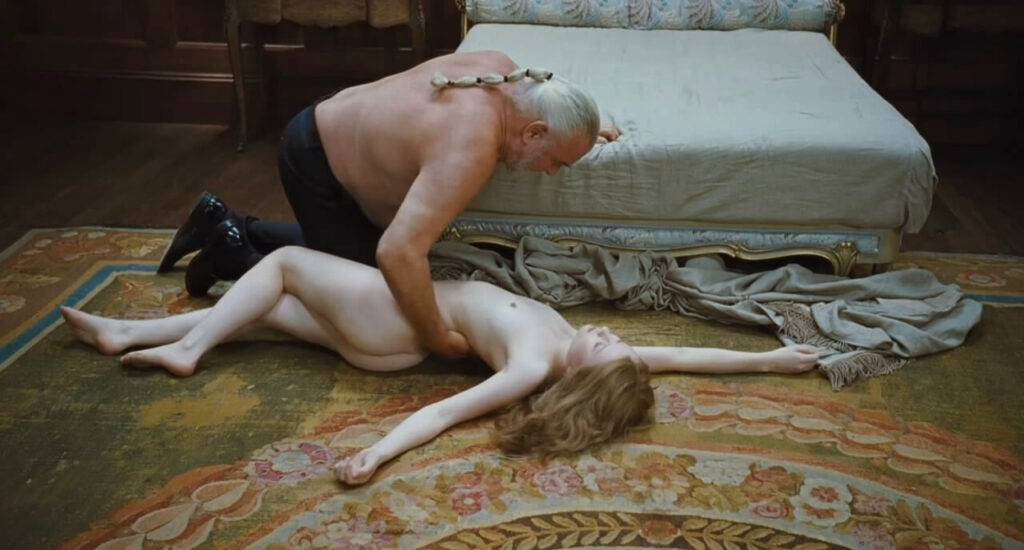
Julia Leigh’s film Sleeping Beauty (2011), as the title suggests, draws upon the classic folktale to construct its social commentary. Leigh, a well respected Australian author, also based her screenplay on the novels The House Of Sleeping Beauties and Memories Of My Melancholy Whores. Sleeping Beauty was Leigh’s debut film as a writer and director and it remains the only film that she has made.
Sleeping Beauty is about Lucy (Emily Browning), a highly sexual and fiercely independent university student who works a number of jobs to pay her way through school and look after her alcoholic friend Birdmann (Ewen Leslie). As Lucy’s financial situation becomes more dire she takes a job serving drinks at private dinner parties where she is required to wear nothing but lingerie. Gradually Lucy advances from server to “sleeping beauty”; a young woman who allows herself to be tranquilized and stripped naked to serve an older gentleman’s pleasure.
Julia Leigh’s camera is detached. Leigh prefers static symmetrical wide shots that ground the spectator at a voyeuristic distance from the drama. This strategy has been the main focus of criticism against Sleeping Beauty which indicates critics’ unwillingness to forego the traditionalism of the masculine gaze. Sleeping Beauty isn’t about titillating the audience, it is about Lucy. Lucy is totally at ease with her sexuality and relishes her submissive impulses. The clinical distance of Leigh’s camera subverts expectations by rendering the sleep and doll play as un-erotic.
Sleeping Beauty provokes a discourse surrounding the very nature of objectification which, as a verb, is simultaneously submissive and dominant. For Lucy to submit as completely as she does is a form of self-assertion that Leigh asks the audience to study as objectively as possible. There has always been a stigma to more invested forms of sexual submission that Leigh’s sex positive protagonist counters at every turn. Within the dramatic complex of Sleeping Beauty the moments in which Lucy sleeps are the moments she escapes the existential crises of her life. It is in these moments of submission and fulfillment that Lucy derives a sense of purpose and identity.
But Leigh, for all of her provocations, offers no easy answers; it’s enough that Sleeping Beauty incites reflection. Sleeping Beauty deserves re-discovery, now more than ever. Leigh’s observations on the sexual gaze may not classify Sleeping Beauty as a feminist text, but it is one of the most sex positive investigations of a kink in a mainstream movie that one is ever likely to see.
